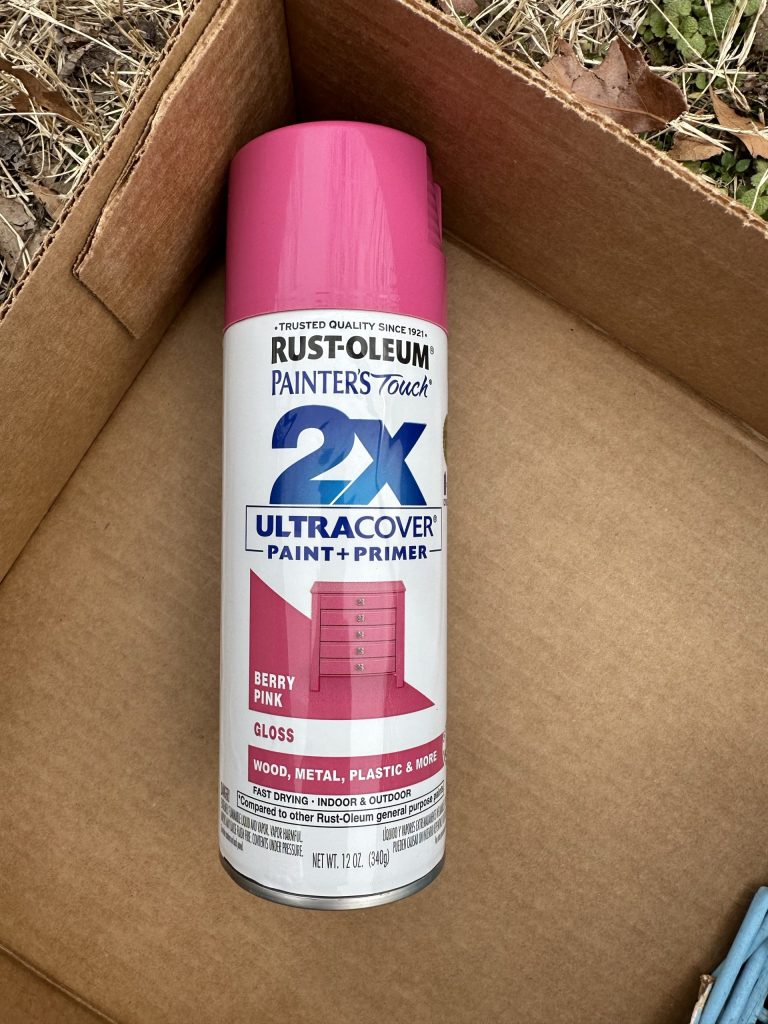Spray paint usually takes 10 to 30 minutes to dry to the touch. Complete curing can take up to 24 hours.
Spray painting is a quick and efficient way to revamp surfaces. People use it for various projects, from small crafts to large furniture pieces. Drying times can vary based on factors like the type of paint, the material being painted, and environmental conditions.
Ideal drying conditions include low humidity and temperatures between 65 and 85 degrees Fahrenheit. Proper ventilation speeds up the process. Always read the manufacturer’s instructions for best results. Understanding these factors helps achieve a smooth and lasting finish. Whether you’re a DIY enthusiast or a professional, knowing how long spray paint takes to dry is essential for planning your projects.
Factors Influencing Drying Time
Spray paint drying time can vary greatly. Several factors influence this time. Understanding these factors helps in planning your project. Let’s dive into the key elements.
Type Of Paint
The type of paint used significantly affects drying time. Different paints have different compositions.
- Enamel Paint: Typically dries within 10-30 minutes. Full curing takes longer.
- Lacquer Paint: Usually dries quickly, often within 10 minutes. It can require multiple coats.
- Acrylic Paint: Dries to the touch within 20-30 minutes. Full drying can take up to 24 hours.
Each type of paint has its unique drying characteristics. Always check the manufacturer’s guidelines for best results.
Environmental Conditions
Environmental factors play a huge role in the drying process. Conditions such as temperature and humidity can affect drying times.
| Condition | Effect on Drying Time |
|---|---|
| Temperature | Warm temperatures speed up drying. Cold temperatures slow it down. |
| Humidity | High humidity levels prolong drying. Low humidity levels accelerate it. |
| Airflow | Good airflow helps paint dry faster. Poor airflow slows the process. |
Maintaining optimal environmental conditions ensures efficient drying. Always paint in a well-ventilated area for best results.

Credit: www.reddit.com
Stages Of Spray Paint Drying
Understanding the stages of spray paint drying can help you achieve the best finish. Each stage has its own characteristics and drying times. Let’s dive into these stages to learn more.
Surface Dry
Surface dry is the first stage. This means the paint feels dry to touch but is still soft underneath. Typically, this stage takes about 10-30 minutes depending on the type of paint and the environment.
Touch Dry
Touch dry means you can touch the surface without leaving a fingerprint. This stage usually occurs within 1-2 hours. It’s safe to handle the item gently, but full hardness hasn’t been achieved yet.
Hard Dry
Hard dry is the final stage. The paint is fully cured and hard. This stage can take anywhere from 24 hours to a few days. Factors like humidity and temperature can affect the drying time.
| Stage | Characteristics | Time Required |
|---|---|---|
| Surface Dry | Feels dry but still soft | 10-30 minutes |
| Touch Dry | No fingerprints when touched | 1-2 hours |
| Hard Dry | Fully cured and hard | 24 hours to a few days |
- Surface Dry: 10-30 minutes
- Touch Dry: 1-2 hours
- Hard Dry: 24 hours to a few days
Each stage is crucial for a perfect finish. Make sure to allow adequate drying time between coats. This ensures the paint adheres properly and looks its best.
Tips To Speed Up Drying
Spray painting can be fun, but waiting for it to dry is not. Luckily, there are simple ways to speed up the drying process. Here are some tips to get your spray paint project dry faster.
Use A Fan
Using a fan helps move air around. This speeds up the drying. Place a fan near your painted object.
- Set the fan to a medium speed.
- Keep the fan on for at least an hour.
- Make sure the fan is not too close.
A fan helps the paint dry evenly. It reduces the risk of dust settling on the wet paint.
Apply Thin Coats
Applying thin coats of spray paint dries faster. Thick coats take longer to dry.
- Shake the spray can well.
- Hold the can 12 inches from the surface.
- Spray in light, even strokes.
Wait 10 minutes between coats. Thin coats also reduce the chance of drips and runs.
| Tip | Benefit |
|---|---|
| Use a Fan | Dries paint faster |
| Apply Thin Coats | Reduces drying time |
These tips make your spray paint projects quicker and easier. Remember to always work in a well-ventilated area.

Credit: amysadlerdesigns.com
Common Drying Timeframes
Understanding the drying time of spray paint is crucial for any project. Different surfaces have different drying times. Here, we will explore common drying timeframes for metal and wood surfaces.
Metal Surfaces
Spray painting on metal surfaces requires precision. The drying time can vary due to the type of paint used and environmental conditions.
- Initial Drying: 10 to 30 minutes
- Touch Dry: 1 to 2 hours
- Fully Cured: 24 to 48 hours
Always ensure the metal surface is clean and free of rust before painting. This can affect drying time and finish quality.
Wood Surfaces
Wood surfaces absorb spray paint differently. This impacts the drying time and the number of coats needed.
- Initial Drying: 15 to 30 minutes
- Touch Dry: 1 to 2 hours
- Fully Cured: 24 to 72 hours
Prepping the wood by sanding and priming can help achieve a smoother finish. This may also reduce drying time.
Refer to the table below for a quick comparison of drying times:
| Surface | Initial Drying | Touch Dry | Fully Cured |
|---|---|---|---|
| Metal | 10 to 30 minutes | 1 to 2 hours | 24 to 48 hours |
| Wood | 15 to 30 minutes | 1 to 2 hours | 24 to 72 hours |
These timeframes are general guidelines. Always check the paint manufacturer’s instructions for best results.
Troubleshooting Slow Drying
Spray paint can be a quick solution for many projects. But sometimes, it takes longer to dry. Understanding the reasons can help you fix this issue and achieve a smooth, beautiful finish.
Humidity Issues
High humidity can make spray paint dry slower. Moisture in the air prevents the paint from setting properly. To check if humidity is a problem, use a hygrometer. Ideal humidity levels for spray painting are between 40% and 50%.
If the humidity is high, paint indoors with a dehumidifier. Or, choose a day with lower humidity. Keeping the environment dry can speed up the drying process significantly.
Improper Application
Applying too much paint at once can cause slow drying. Thick layers take longer to dry. Always spray in thin, even coats.
Hold the can 6-12 inches away from the surface. Spray in a steady, sweeping motion. Let each coat dry before adding another. This ensures faster drying and a smoother finish.
Follow these steps to avoid common mistakes:
- Shake the can well before use.
- Test spray on a piece of cardboard.
- Keep the nozzle clean to avoid clogs.
Proper application techniques can make a big difference in drying times.
:max_bytes(150000):strip_icc()/how-to-spray-paint-furniture-5198299-10-2ecc9ce724ac45589e8083c06300f2c0.jpg)
Credit: www.thespruce.com
Frequently Asked Questions
How Long Does Spray Paint Take To Dry?
Spray paint typically takes about 30 minutes to become dry to the touch. However, it can take 24 hours to fully cure.
Can Temperature Affect Spray Paint Drying Time?
Yes, temperature greatly affects drying time. Warmer temperatures speed up drying, while cooler temperatures slow it down.
Does Humidity Impact Spray Paint Drying?
High humidity levels can slow down the drying process of spray paint. Lower humidity helps it dry faster.
Can You Speed Up Spray Paint Drying?
Yes, you can speed up drying by using a fan or applying thin coats. Always ensure good ventilation.
Conclusion
Achieving the perfect spray paint finish depends on drying time. Factors include paint type, surface, and conditions. Always follow manufacturer guidelines. Patience ensures a smooth, durable result. Remember, investing time in proper drying enhances your project’s quality. Happy painting!
